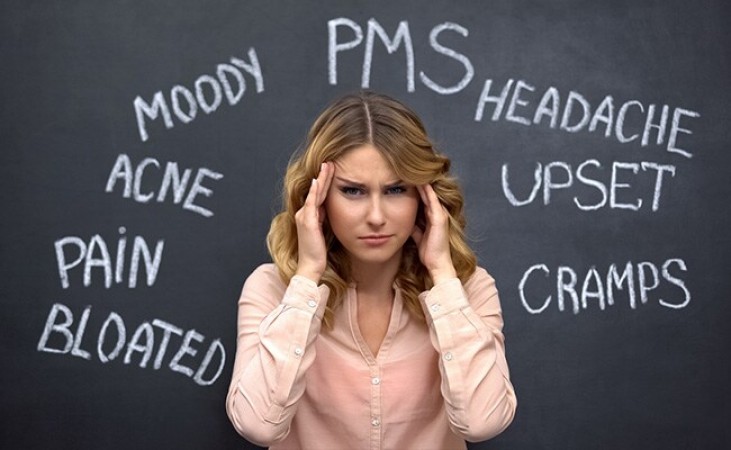
Our bodies function like well-oiled machines, with various hormones orchestrating intricate processes to maintain balance and health. However, certain habits can disrupt this delicate equilibrium, leading to a cascade of hormonal imbalances. Let's delve into some common habits that can wreak havoc on our hormonal harmony.
1. The Impact of Processed Foods on Hormonal Balance
Processed foods often contain excessive amounts of refined sugars, unhealthy fats, and artificial additives. Consuming these foods regularly can lead to insulin resistance, disrupting the balance of insulin, cortisol, and other hormones involved in metabolism regulation.
2. The Role of Sugar and Insulin
High sugar intake spikes insulin levels, leading to insulin resistance over time. This imbalance can contribute to weight gain, diabetes, and hormonal dysregulation, affecting various bodily functions.
3. The Sedentary Epidemic
Leading a sedentary lifestyle not only affects physical health but also disrupts hormonal balance. Lack of physical activity can impair insulin sensitivity, increase cortisol levels, and disrupt other hormones responsible for metabolism and overall well-being.
4. Exercise as a Hormonal Regulator
Regular exercise helps maintain hormonal balance by improving insulin sensitivity, reducing cortisol levels, and promoting the release of endorphins, the body's natural mood enhancers.
5. The Importance of Quality Sleep
Inadequate or poor-quality sleep can significantly impact hormone levels, particularly those involved in appetite regulation, stress response, and metabolism. Chronic sleep deprivation disrupts the production of leptin and ghrelin, hormones that regulate hunger and satiety, leading to overeating and weight gain.
6. Cortisol and the Sleep-Wake Cycle
Disrupted sleep patterns can elevate cortisol levels, impairing the body's ability to regulate stress and increasing the risk of hormonal imbalances associated with chronic stress.
7. Stress and Hormonal Imbalance
Chronic stress triggers the release of cortisol, the body's primary stress hormone. Prolonged exposure to elevated cortisol levels can disrupt the balance of other hormones, such as insulin, thyroid hormones, and reproductive hormones, leading to various health issues.
8. Mind-Body Practices for Stress Management
Engaging in relaxation techniques such as meditation, deep breathing exercises, or yoga can help mitigate the effects of chronic stress, promoting hormonal balance and overall well-being.
9. The Impact of Environmental Toxins on Hormones
Exposure to environmental toxins such as endocrine-disrupting chemicals (EDCs) found in plastics, pesticides, and household products can interfere with hormonal signaling pathways, contributing to hormonal imbalances and health complications.
10. Strategies for Minimizing Exposure
Taking steps to reduce exposure to EDCs, such as using natural cleaning products, avoiding plastic food containers, and choosing organic produce, can help support hormonal balance and overall health.
11. The Role of Nutritional Balance
An imbalanced diet lacking essential nutrients can disrupt hormonal function and contribute to hormonal imbalances. Nutrient deficiencies, such as inadequate intake of vitamins, minerals, and omega-3 fatty acids, can impair hormone production and regulation.
12. Importance of a Balanced Diet
Consuming a varied and balanced diet rich in whole foods, including fruits, vegetables, lean proteins, and healthy fats, provides the necessary nutrients for optimal hormonal health and overall well-being.
13. Caffeine and Hormonal Disruption
While moderate caffeine intake is generally safe for most individuals, excessive consumption can disrupt hormonal balance. Caffeine stimulates the release of cortisol and adrenaline, contributing to increased stress levels and hormonal imbalances.
14. Moderation is Key
Limiting caffeine intake and opting for decaffeinated beverages or herbal teas can help prevent the negative effects of excessive caffeine consumption on hormonal health.
15. Alcohol's Impact on Hormonal Balance
Excessive alcohol consumption can disrupt hormonal balance by affecting the liver's ability to metabolize hormones and interfering with hormonal signaling pathways. Chronic alcohol abuse is associated with disruptions in reproductive hormones, thyroid function, and stress response.
16. Responsible Drinking Habits
Practicing moderation and mindful drinking can help mitigate the adverse effects of alcohol on hormonal health, promoting overall well-being. Maintaining hormonal balance is crucial for overall health and well-being. By avoiding these detrimental habits and adopting healthy lifestyle practices, such as a balanced diet, regular exercise, quality sleep, stress management techniques, and minimizing exposure to environmental toxins, we can support optimal hormonal function and enhance our overall health.
BYD electric sedan launched in India, will compete with Hyundai Ioniq 5
This creative Indian woman is the designer of Mahindra Thar, Scorpio and XUV
Stolen Ferrari recovered after 29 years, London Police found the car